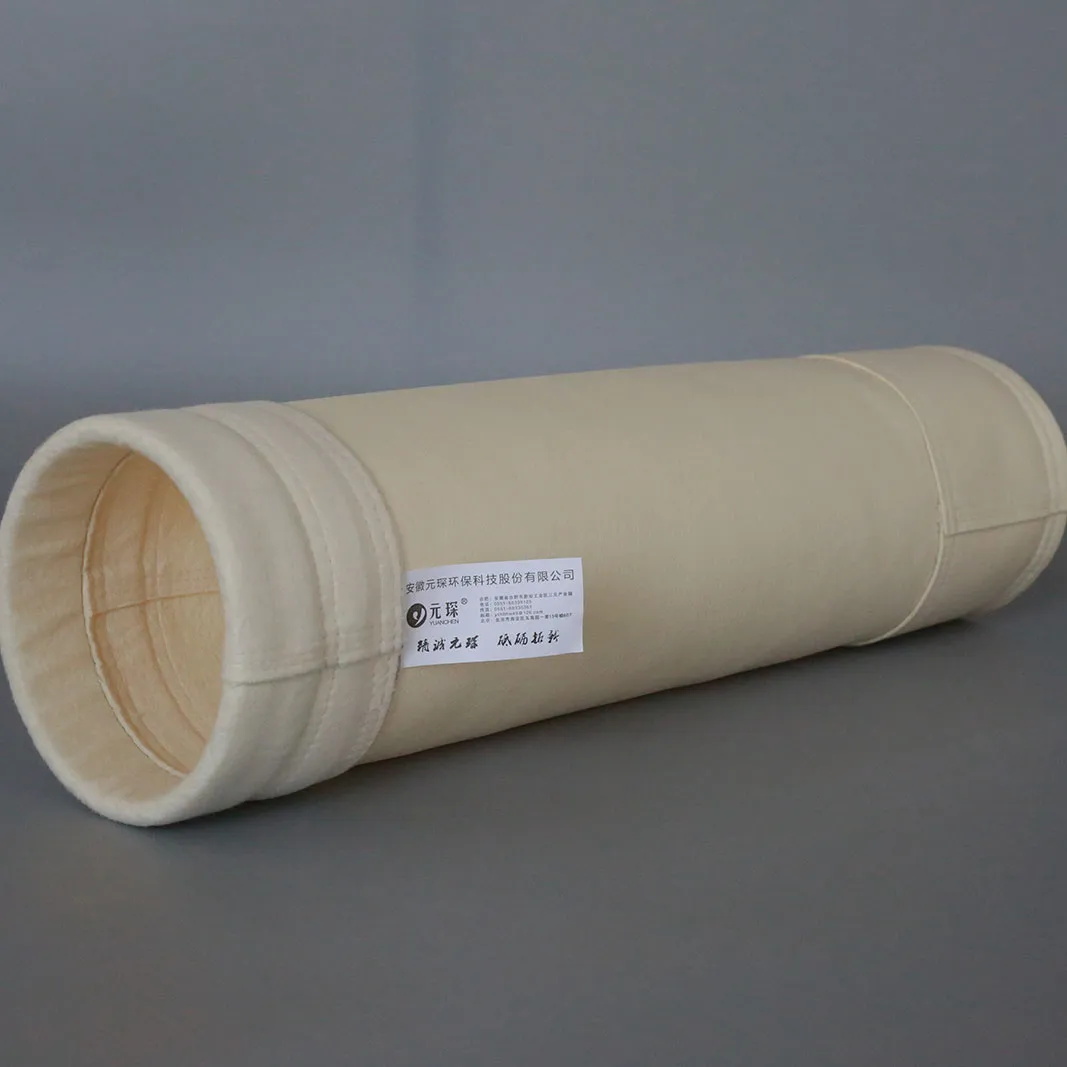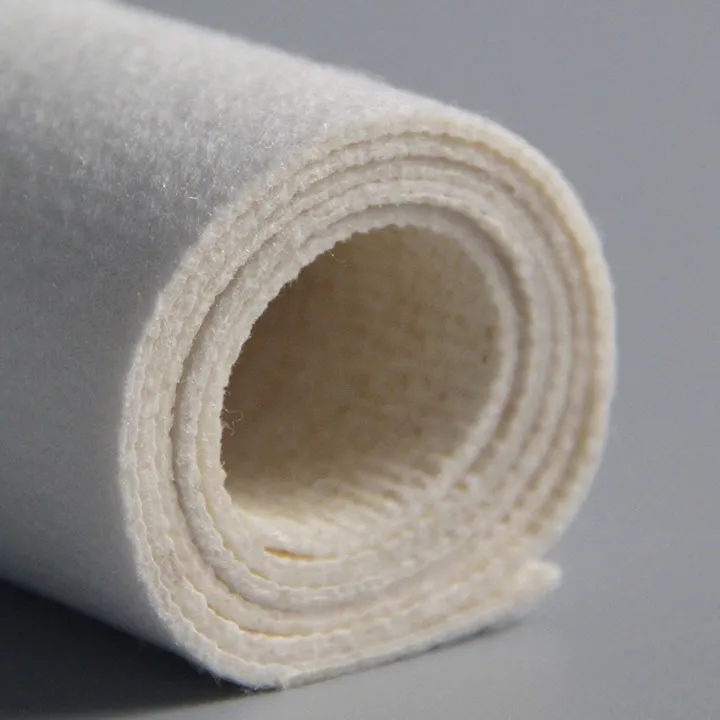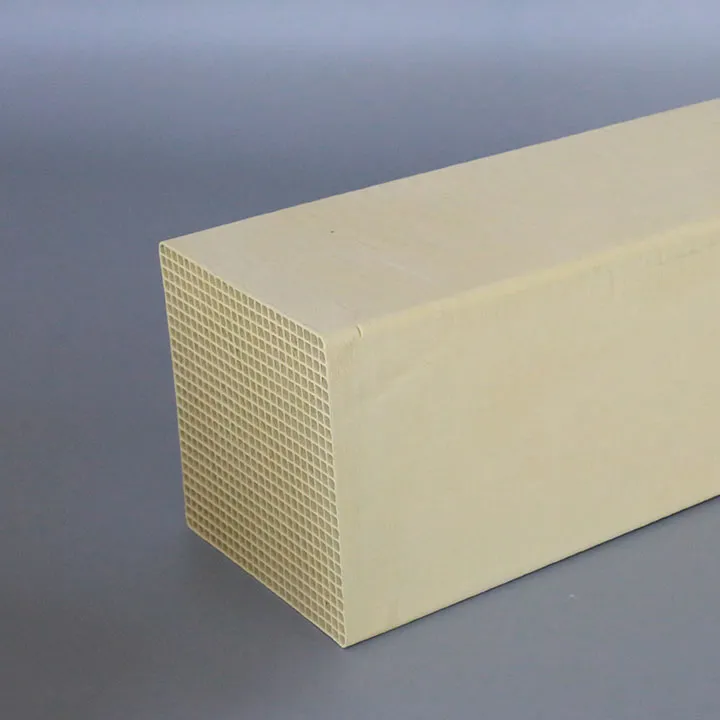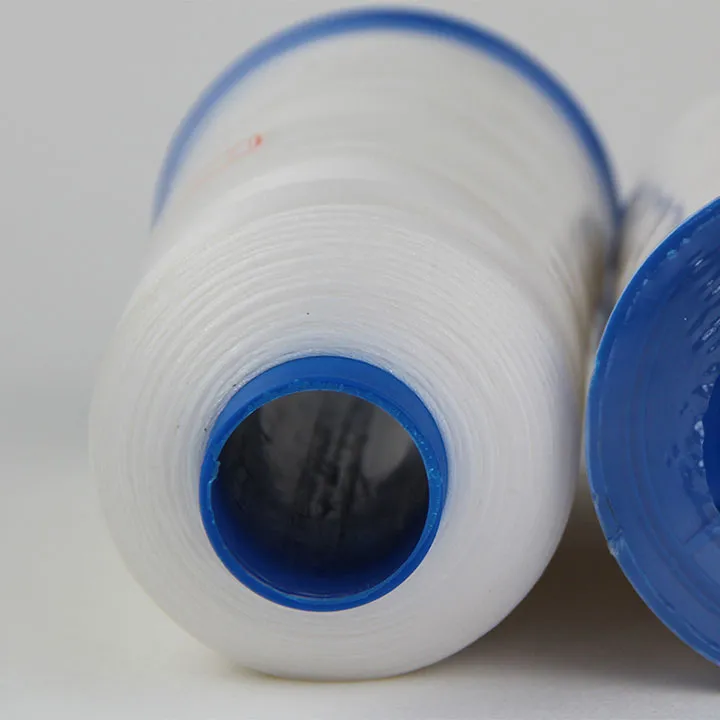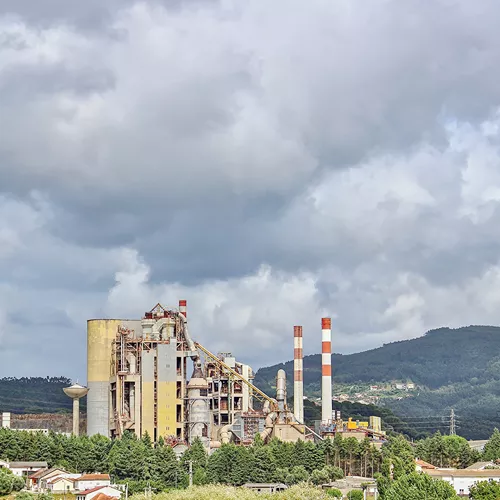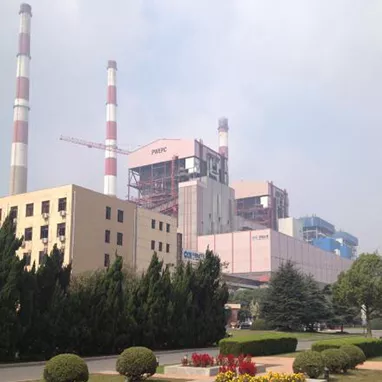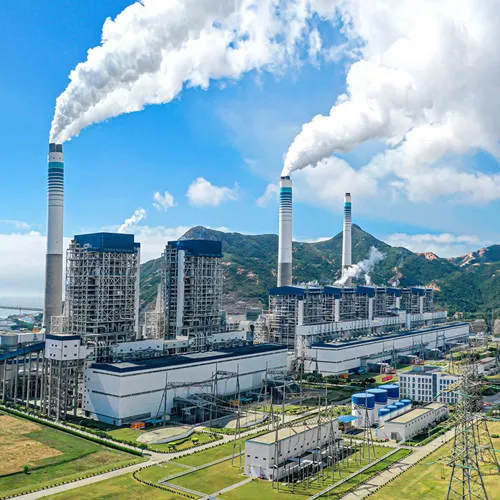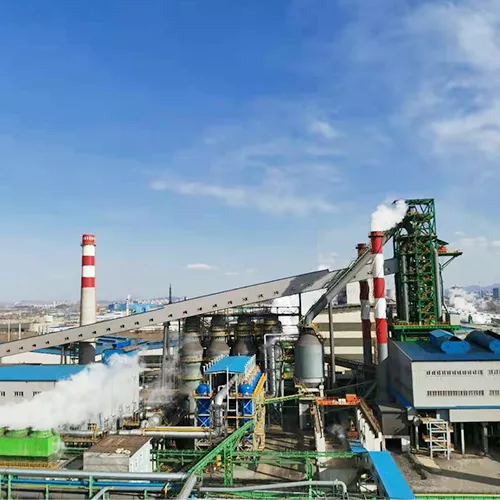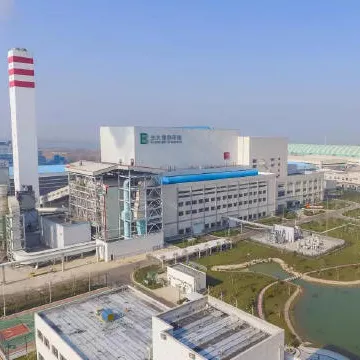استراتيجية تحسين كفاءة أكياس فلتر الغبار وتطبيقها متعدد الأبعاد في السيناريوهات الصناعية
كجزء مهم من نظام الترشيح، تُستخدم أكياس فلتر الغبار على نطاق واسع في مختلف المجالات الصناعية. وتتمثل وظيفتها الرئيسية في ترشيح وتجميع الغبار الناتج عن عملية الإنتاج، وتقليل انبعاثات التلوث، وحماية صحة الموظفين، وتقليل التأثير البيئي. وبالنسبة للمجالات الصناعية المختلفة، يختلف اختيار واستخدام أكياس فلتر الغبار أيضًا. ستقوم هذه المقالة بتحليل التطبيقات المحددة لأكياس فلتر الغبار. أكياس تصفية الغبار في المجالات الصناعية مثل الكهرباء والصلب والمواد الكيميائية والأسمنت وحرق النفايات لمساعدة الشركات على فهم حلول إزالة الغبار المناسبة.
1. صناعة الطاقة: أكياس فلتر مقاومة لدرجات الحرارة العالية والتآكل
في صناعة الطاقة، وخاصة محطات الطاقة الحرارية، ستنتج عملية احتراق الفحم كمية كبيرة من الدخان وغاز العادم، والتي لا تحتوي على الغبار فحسب، بل قد تحتوي أيضًا على مكونات ضارة مثل الكبريتيدات وأكاسيد النيتروجين. درجة حرارة غاز المداخن في صناعة الطاقة مرتفعة نسبيًا، وعادة ما تكون بين 150 درجة مئوية إلى 300 درجة مئوية، وبالتالي فإن مقاومة درجات الحرارة العالية ومقاومة التآكل لحقيبة الفلتر عالية جدًا.
مواد حقيبة الفلتر: تشتمل مواد حقيبة الفلتر المستخدمة بشكل شائع على PPS وP84 وPTFE وما إلى ذلك، والتي تتمتع بثبات عالي في درجات الحرارة ومقاومة للتآكل الحمضي والقلوي.
خصائص أكياس الفلتر: في صناعة الطاقة، يجب أن تتمتع أكياس الفلتر أيضًا بمقاومة جيدة للأكسدة ومقاومة للصدمات الحرارية للتكيف مع تقلبات غاز دخان الغلايات.
تأثير الاستخدام: لا تستطيع أكياس الفلتر المحسّنة التقاط جزيئات الغبار الصغيرة بشكل فعال فحسب، بل تساعد أيضًا في تقليل انبعاث المواد الضارة في غاز المداخن وتحقيق معايير حماية البيئة.
2. صناعة الصلب: أكياس فلتر مقاومة للتآكل
يحتوي غاز المداخن الناتج أثناء عملية صهر الصلب على نسبة كبيرة من الغبار والجسيمات الخشنة، كما أن بعض جزيئات الغبار لها خصائص درجات حرارة عالية، مما يسهل تآكل المعدات. لذلك، فإن صناعة الصلب لديها متطلبات عالية لمقاومة التآكل ومقاومة درجات الحرارة العالية لأكياس فلتر إزالة الغبار.
مواد أكياس الفلتر: تستخدم صناعة الصلب عادةً أكياس فلتر الألياف الزجاجية أو مواد أكياس الفلتر المركبة، مثل أكياس الفلتر المطلية بـ PTFE وأكياس الفلتر المطلية بألياف زجاجية أكياس فلتر P84.
خصائص أكياس الفلتر: يجب ألا تكون أكياس الفلتر المستخدمة في مناطق درجات الحرارة المرتفعة في صناعة الصلب مقاومة لدرجات الحرارة المرتفعة فحسب، بل يجب أن تتمتع أيضًا بقوة شد عالية ومقاومة جيدة للتآكل للتعامل مع الغبار شديد الكشط.
تأثير الاستخدام: يمكن لمواد كيس الفلتر المناسبة أن تعمل على إطالة عمر خدمة كيس الفلتر بشكل فعال، وتقليل تكرار الاستبدال، وتحسين كفاءة التقاط الغبار بشكل كبير وتقليل التلوث الثانوي.
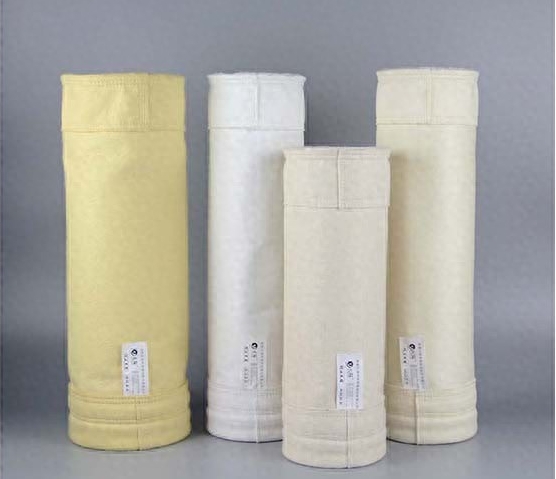
3. الصناعة الكيميائية: أكياس الفلتر المقاومة للتآكل
أثناء عملية الإنتاج الكيميائي، يتم توليد مجموعة متنوعة من الغازات والغبار المسببة للتآكل، مثل الكلوريدات والكبريتيدات والغبار الحمضي، وما إلى ذلك، لذلك يتم وضع متطلبات صارمة على مقاومة التآكل لأكياس فلتر الغبار. في الوقت نفسه، يختلف حجم جزيئات الغبار وتكوينها في الصناعة الكيميائية بشكل كبير، لذلك يجب أيضًا مطابقة اختيار المواد وكفاءة الترشيح لحقيبة الفلتر بدقة وفقًا لظروف العمل.
مواد أكياس الفلتر: تُستخدم PTFE وPPS وP84 وغيرها من المواد شديدة المقاومة للتآكل بشكل شائع في الصناعة الكيميائية. تتمتع هذه المواد بمقاومة ممتازة للأحماض والقلويات ويمكنها الحفاظ على الاستقرار في البيئات الحمضية والقلوية القوية.
ميزات كيس الفلتر: مقاومة درجات الحرارة العالية ومقاومة التآكل الكيميائي هي المتطلبات الأساسية لأكياس الفلتر في الصناعة الكيميائية. كما يجب معالجة سطح كيس الفلتر لتقليل امتصاص الغبار وتراكمه الكهروستاتيكي.
تأثير الاستخدام: يمكن استخدام أكياس الفلتر المقاومة للتآكل بدرجة عالية في البيئات الحمضية والقلوية لفترة طويلة لضمان كفاءة إزالة الغبار مع تقليل تكاليف استبدال أكياس الفلتر وصيانتها للشركة.
4. صناعة الأسمنت: أكياس الترشيح المقاومة لدرجات الحرارة العالية
تحتاج عملية إنتاج صناعة الأسمنت إلى المرور عبر روابط متعددة ذات درجات حرارة عالية، وخاصة أن كمية كبيرة من غاز المداخن عالي الحرارة المتولد عند رأس وذيل الفرن تحتوي على نسبة عالية من الغبار. يحتوي الغبار أيضًا على مكونات معينة مثل السيليكا والتكلس، مما يشكل تحديًا لمقاومة درجات الحرارة العالية ومقاومة التآكل الحمضي والقلوي لحقيبة الفلتر.
مواد أكياس الفلتر: تُستخدم أكياس الفلتر المصنوعة من الألياف الزجاجية أو أكياس الفلتر المطلية بشكل شائع في صناعة الأسمنت، مثل أكياس الفلتر المطلية بـ P84، والتي يمكنها مقاومة تأثير بيئة درجة الحرارة العالية أثناء إنتاج الأسمنت.
ميزات كيس الفلتر: يجب أن تكون مادة كيس الفلتر مقاومة لدرجات الحرارة العالية والأحماض، وخاصة في حالة التقلبات الكبيرة في الإنتاج، ويمكنها التكيف مع التغيرات اللحظية في درجات الحرارة. في الوقت نفسه، يجب أن يتمتع كيس الفلتر بأداء تنظيف جيد لمنع تراكم الغبار والانسداد.
تأثير الاستخدام: يمكن أن يؤدي استخدام أكياس الفلتر المقاومة لدرجات الحرارة العالية إلى تصفية الغبار عالي الحرارة بشكل فعال، وتقليل فقدان المعدات، وتحسين الاستقرار العام لنظام إزالة الغبار، وتلبية متطلبات انبعاثات حماية البيئة لصناعة الأسمنت.
5. صناعة حرق النفايات: أكياس الترشيح المقاومة للأحماض والقلويات
يحتوي غاز المداخن الناتج عن عملية حرق النفايات على مكونات معقدة، والتي قد تحتوي على غازات حمضية ومعادن ثقيلة وديوكسينات ومواد ضارة أخرى، مما يطرح متطلبات متعددة لمواد أكياس الترشيح لتكون مقاومة للأحماض والقلويات والأكسدة. يتميز غاز المداخن الناتج عن الحرق بدرجة حرارة عالية وتآكل قوي، مما يتطلب أن تتمتع أكياس الترشيح بمقاومة فائقة للتآكل وقدرة ترشيح.
مواد أكياس الفلتر: تُستخدم أكياس الفلتر المصنوعة من مادة PTFE وP84 وألياف الزجاج المركبة وما إلى ذلك بشكل شائع في حرق النفايات. تتمتع هذه المواد بمقاومة جيدة للأحماض والقلويات ومقاومة للأكسدة في درجات الحرارة العالية.
ميزات كيس الفلتر: عادة ما يحتاج سطح كيس الفلتر إلى الطلاء لتعزيز مقاومة التآكل ومقاومة الالتصاق، وبالتالي منع المواد الضارة من الالتصاق. بالنسبة للمواد التي يصعب تحللها مثل الديوكسينات، يجب أن يحتوي كيس الفلتر على بنية مسامية دقيقة أعلى لتحقيق الترشيح العميق.
تأثير الاستخدام: يمكن لأكياس فلتر إزالة الغبار عالية الكفاءة أن تلتقط بشكل فعال المواد السامة في غاز دخان الحرق، وتقلل من انبعاثات الملوثات، وتضمن معايير حماية البيئة أثناء عملية الحرق.
6. مجالات أخرى: الاستخدام المرن لأكياس الفلتر العامة
بالإضافة إلى الصناعات الرئيسية المذكورة أعلاه، تُستخدم أكياس فلتر الغبار على نطاق واسع في صناعة الورق والأدوية وتجهيز الأغذية وغيرها من المجالات. وعلى الرغم من اختلاف تركيب الغبار ومتطلبات الانبعاثات في هذه الصناعات، إلا أنها تتطلب جميعًا حلول إزالة الغبار وترشيحه بكفاءة وثبات.
مواد أكياس الفلتر: تُصنع أكياس الفلتر العامة في الغالب من ألياف البوليستر والبولي بروبيلين والنايلون ومواد أخرى للتكيف مع درجات الحرارة المنخفضة واحتياجات ترشيح الغبار العامة.
خصائص أكياس الفلتر: في هذه الصناعات، تُستخدم أكياس الفلتر بشكل أساسي لتصفية جزيئات الغبار الصغيرة لضمان بيئة إنتاج نظيفة. لذلك، عادةً ما تتمتع مواد أكياس الفلتر بنفاذية هواء جيدة ومقاومة للرطوبة.
تأثير الاستخدام: يمكن لأكياس الفلتر العامة التحكم بشكل فعال في انبعاثات الغبار، وتقليل تلوث الهواء، وفي الوقت نفسه تحسين نظافة بيئة ورشة العمل، مما يساعد على تحسين جودة المنتج وصحة الموظفين.


